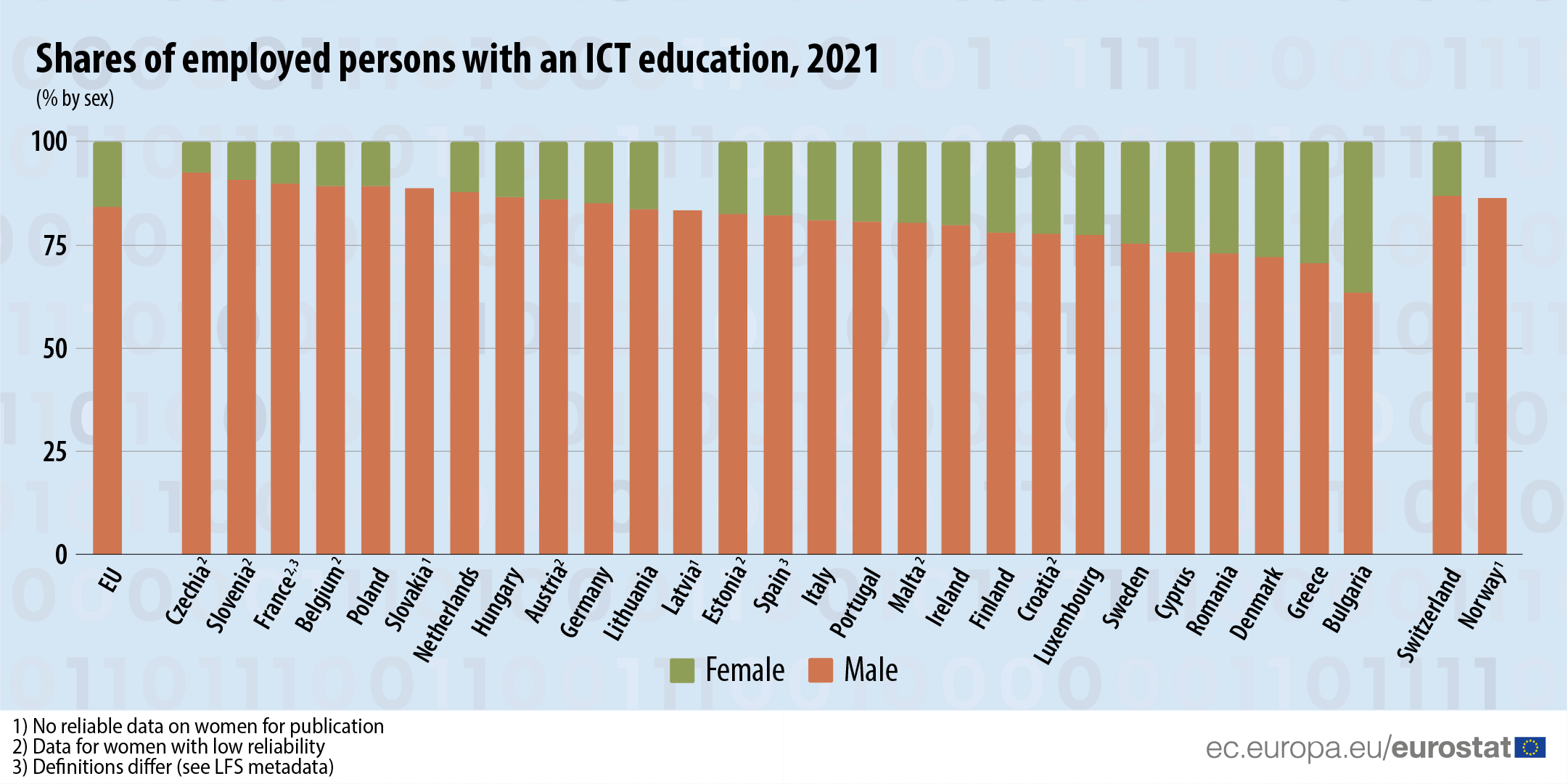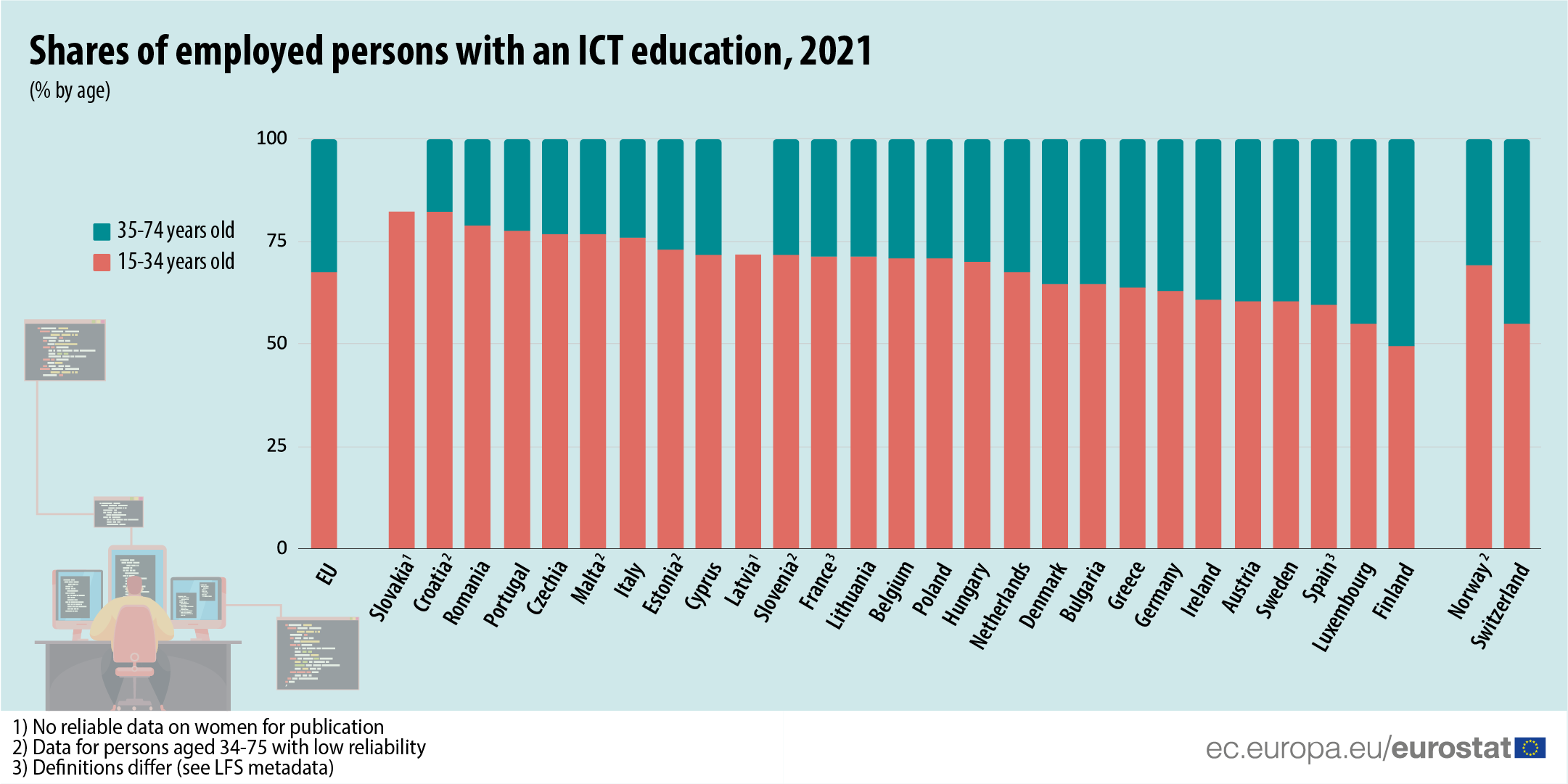In 2021, there were 2.79 million employed persons with an ICT education, 3.3% more than in 2020. Men represented 84.1% (2.35 million) of the EU's total workforce with an ICT educational background, an increase of 1.3% from the previous year (2.20 million in 2020), while the number of women in employment with an ICT education declined. In 2021, women represented 15.9% (442 800) of the ICT workforce compared with 17.2% (463 800) in 2020.
Looking at the EU Member States, Czechia (92.6%), Slovenia (90.8%), France (89.7%), Belgium (89.2%) and Poland (89.1%) had the highest shares of men in the total number of employed persons with an ICT education.
Women accounted for more than a quarter of employed persons with an ICT education in Bulgaria (36.6%), Greece (29.4%), Denmark (28.0%), Romania (27.2%) and Cyprus (26.9%).
Source dataset: isoc_ski_itsex
Majority of ICT-educated persons in employment are young
In the EU, more than two-thirds (67.5%) of employed persons with an ICT education were between 15 and 34 years old in 2021, and 32.5% were between 35 and 74 years old.
Source dataset: isoc_ski_itage
Young people aged 15 to 34 made up the majority of ICT-educated persons in employment in almost all EU Member States, with the highest shares in Slovakia (82.4%), Croatia (82.2%), Romania (78.8%), Portugal (77.7%) and Czechia (76.9%), Finland being the exception with 49.5%.
The highest shares of 35- to 74-years-old with an ICT education in the EU workforce was in Finland, where the share was almost 50/50 (50.5% for 35-74 years old), followed by Luxembourg (45.2%), Spain (40.5%), Sweden (39.7%) and Austria (39.5%).
For more information:
- Statistics Explained article on ICT education
- Database on digital economy and society
- Dedicated section on digital economy and society
Methodological notes:
- ICT-educated persons have achieved formal qualifications at upper secondary level or at tertiary level within the fields of: computer use, database and network design and administration, software and applications development and analysis, and inter-disciplinary programmes and qualifications involving Information and Communication Technologies.
- For all EU-countries there is a break-in time series for employed persons with an ICT education by sex and age (see LFS new methodology from 2021 onwards).
- For Austria, Belgium, Croatia, Czechia, Estonia, France, Malta and Slovenia there is low reliability for the female data provided by the Member States.
- For Latvia, Norway and Slovakia data on women in employment with an ICT education background are not available because their reliability level does not reach the publication thresholds.
- For Slovakia and Latvia data for the older age class (34-75 years) are not available because their reliability level does not reach the publication thresholds.
- For employed persons with an ICT education in 2021, definitions differ for Spain and France, please see LFS metadata for more details.
To contact us, please visit our User Support page.
For press queries, please contact our Media Support.



